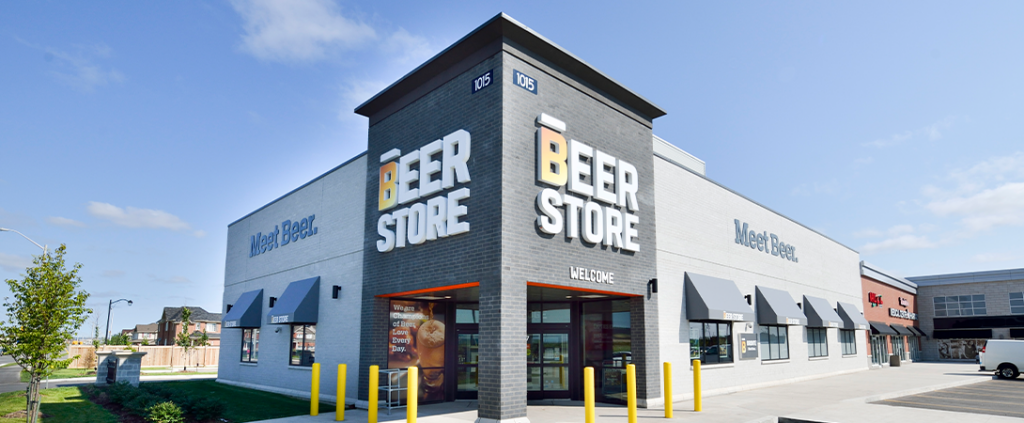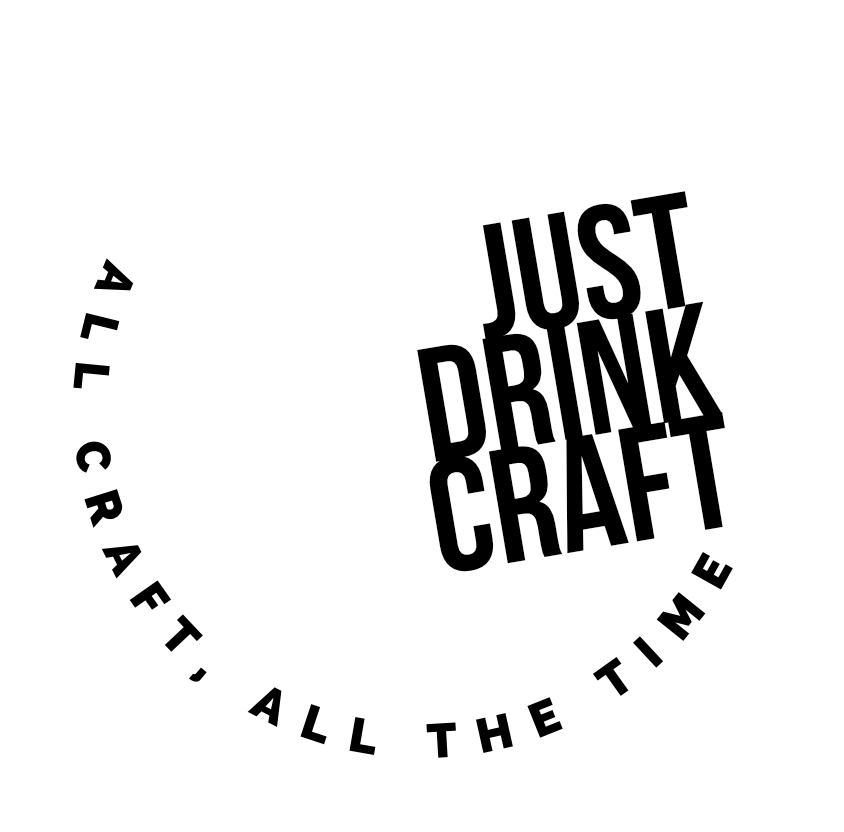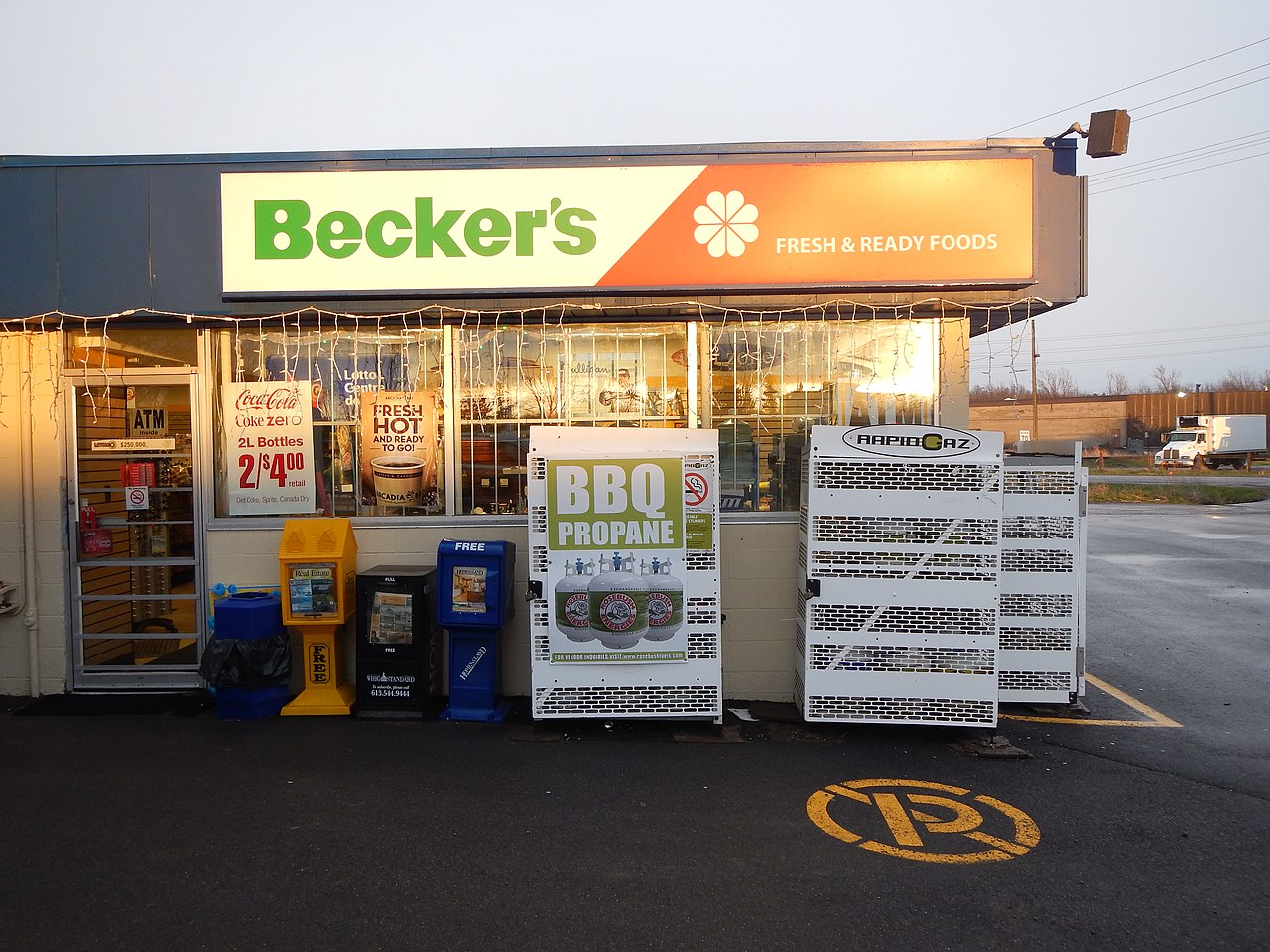Rumour has from the Globe and Mail that the Ontario Government is set to announce allowing corner stores to sell beer. But rumours were also circulating last July, and we’ve seen nothing yet.
However, the rumours may all circle the government’s deal with the Beer Store.
The Beer Store – Privately owned and not that Canadian
Before beer and wine were in the supermarket, most have always thought of the two places to get alcohol: the LCBO and the Beer Store. Two many of us, they are simply the same thing, one selling a variety of products, and the other beer.
What many people still don’t know is that the beer store is not a provincial agency like the LCBO and that the beer we think of being Canadian, like Labatts and Molson’s, is not exactly 100% Canadian. Instead, The Beer Store is privately owned and run by the three big breweries Labatts (a subsidiary of internationally owned AB-InBev), Molson Coors (Canadian-American-owned) and Sleeman (Japanese-owned). The beer they carried was skewed towards the brands produced by these breweries. What incentive is there to sell 100% Canadian-owned beer?
Supporting Ontario-owned and run breweries
The majority of businesses in Ontario are small businesses and include the many craft breweries in the province. There is not only pressure from Ontario breweries to loosen the Beer Store’s grip on the beer industry, but there was also a push from grocery stores as well.
In 2015, an agreement was made between The Beer Store and the government, known as the Master framework agreement which was to be in effect for 10 years, subject to renewal for 5-year terms unless terminated.
It was through this agreement that the government pushed to give Ontario-owned craft breweries a seat at the table. This agreement allowed beer to be sold in grocery stores and was seen as a win by some.

However, the seat at the table was small. The agreement has several requirements around quantities in supermarkets (a 6-pack is the maximum), to close beer-carrying supermarkets were to Beer Stores, among other requirements.
As of the time of writing we are now in year 7 and are approaching year 8 in the agreement. If either the Beer store or the province wants to terminate the agreement, they need to give notice to that effect at least two years before the end of the term or the renewal term.
Do the corner store rumours suggest a termination or merely a renegotiation?
Corner Store Beer Sales a Game Changer?
One must look at the rumours as a way the government can test the temperature on this issue with the public. Or it simply may be an attempt to set the subject of the discussion. Finally, being able to buy beer at corner stores may seem like a real movement forward.
Unfortunately, being able to sell craft beer through corner stores may not be the game changer for craft breweries that it seems.
Unless there are new agreements, The Beer Store is still the only retailer allowed to sell beer in 12 or 24 cases. People buy by volume because it’s cheaper. The Beer Store advertises that you can save an average of $9 with every purchase. Ontario Breweries trying to sell by individual cans are going to struggle to compete.
Even in a full termination of the agreement, the Beer Store will still be allowed to continue to distribute and sell beer from its operations for at least seven years after termination of the agreement.
We pay for the convenience. Products sold at corner stores tend to be more expensive. Even if the retailers were allowed to sell 12 packs or “2-4s”, corner stores still don’t have the shelf space to sell large cases or the storage space for inventory. The Beer Store will still be the best deal with all its volume production and distribution for beer drinkers. And once the deal is terminated, Beer Stores are under no obligation to continue to sell Ontario craft beer.
What about the empties?
Finally, we land on an added complexity of negotiations. It’s estimated that almost all Beer Store empties are returned. The Beer Store sees a high return rate for empties because of their system. This is the social benefit of having the Beer Store. Those in the packaging industry state behind closed doors that the relatively recent recycling system in Ontario is poorly set up and much of our recycling is not recycled. This creates a big bargaining chip for the Beer Store.
Recycling then becomes an additional cost that eventually rolls out to the consumer, either potentially from taxation from the province, or more likely, from the individual companies who created the packaging that will have to manage their own recycling. Grocery stores and other distributors don’t have the capacity.
So what is the best solution for craft brewers and the people they employ, and for the consumer?

